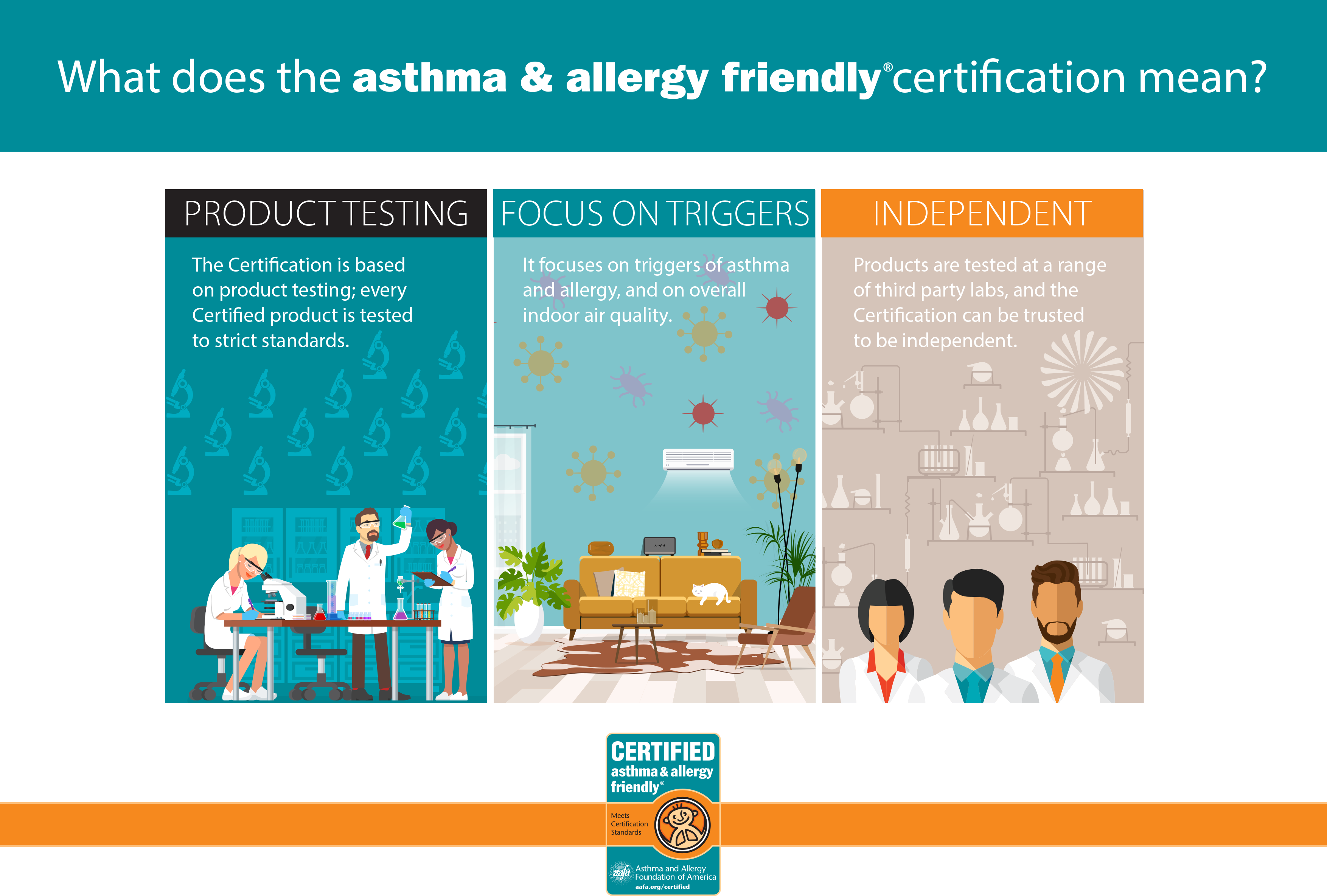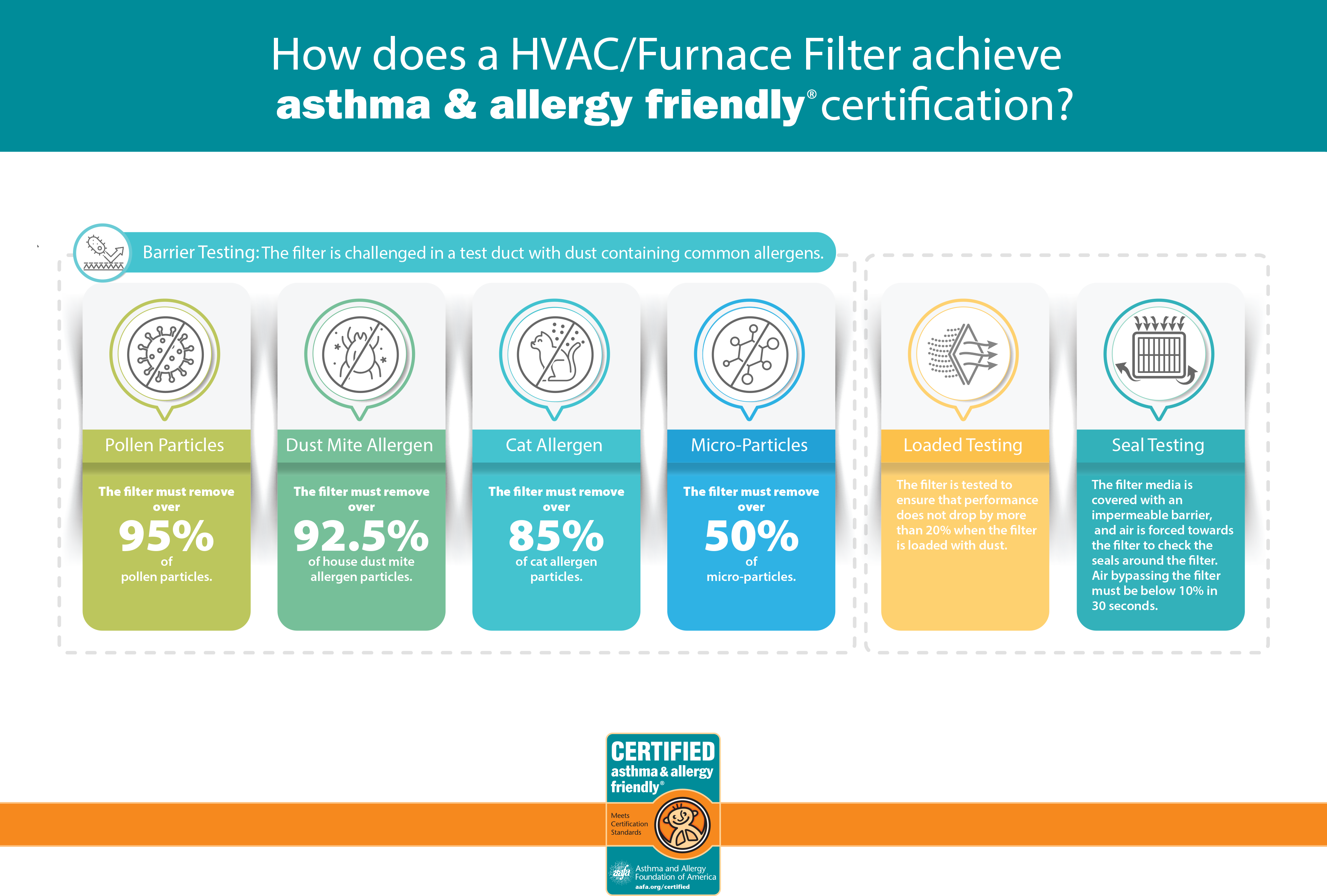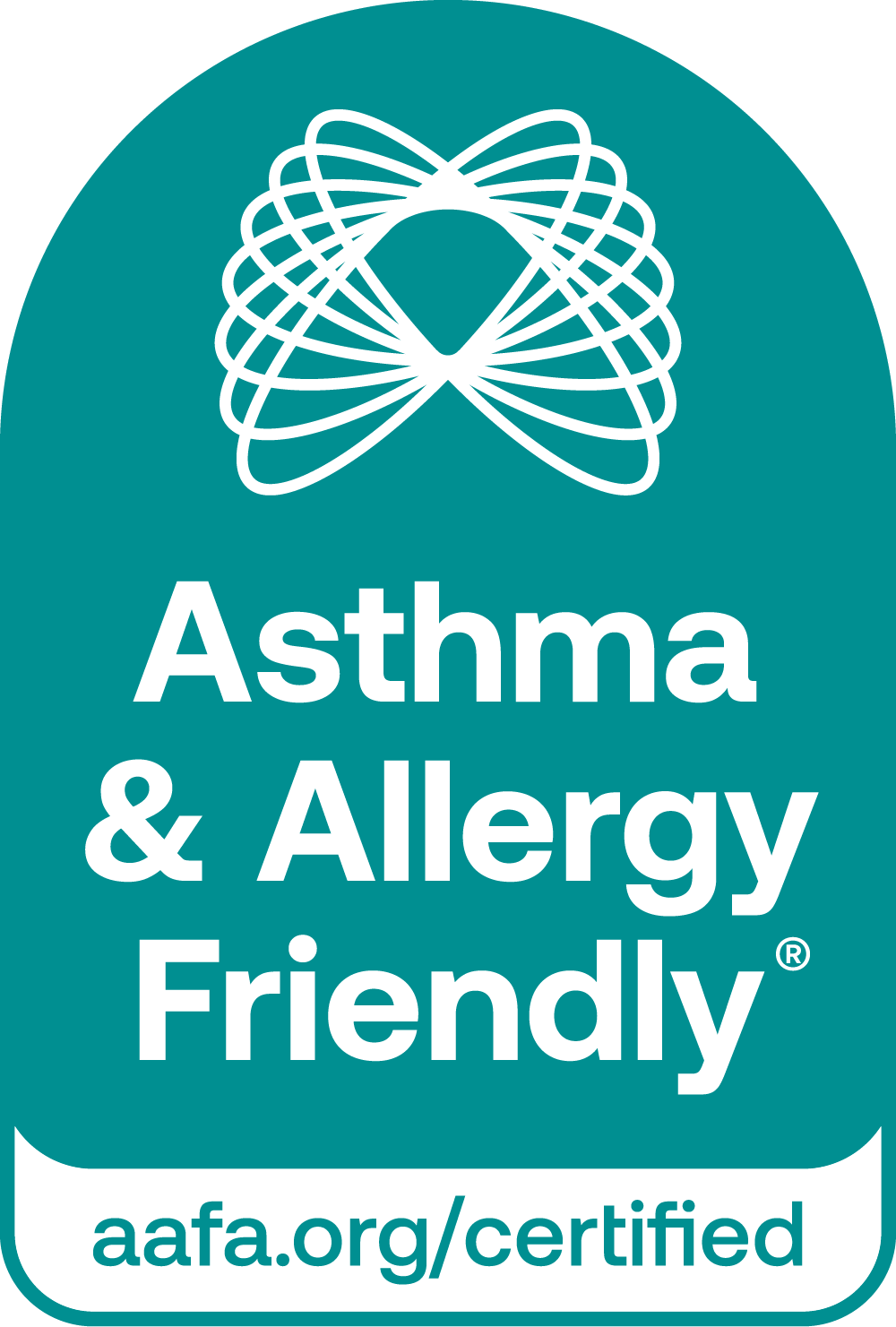Good indoor air quality (IAQ) is important for health and choosing independently tested HVAC filters can significantly improve IAQ by reducing a variety of airborne contaminants, including allergens like pollen, dust mite allergen, and pet dander.
As awareness of the air we breathe increases, so does the recognition of the importance of maintaining good indoor air quality (IAQ). While those with asthma or allergies are particularly affected by the quality of indoor air, improving IAQ is beneficial for everyone’s health and well-being. HVAC (Heating, Ventilation, and Air Conditioning) systems and filters can have a significant impact in helping to achieve and maintain consistently good IAQ. These systems are designed to regulate temperature, control humidity, and ensure good air quality by filtering and circulating air throughout the home or building. HVAC filters serve a crucial role in maintaining a healthier indoor environment by trapping and removing harmful particles and infectious pathogens from the air.
Why Indoor Air Quality Matters
IAQ is a crucial factor in creating a healthy living space, particularly for individuals with asthma or allergies. Pollutants such as pollen, dust mite allergen, pet dander, and mold spores can accumulate indoors and become airborne within the breathing zone, leading to respiratory issues and exacerbating symptoms for those with sensitivities. Poor IAQ has been linked to a range of health problems, including asthma, allergic reactions, and long-term respiratory conditions.
In many homes, HVAC systems are the primary means of circulating air. However, as these systems move air throughout the house, they can also distribute allergens and other potentially harmful particles if not properly equipped with effective filtration systems. This makes the choice of HVAC filters crucial in managing and improving indoor air quality.
How HVAC Filters Improve Indoor Air Quality
HVAC filters are designed to trap and remove a variety of airborne contaminants, including allergens like pollen, dust mite allergen, and pet dander. This helps prevent these particles from recirculating throughout your home, thereby reducing known triggers of asthma and allergies.
An effective HVAC filter can also help control humidity levels. Maintaining an indoor relative humidity (RH) between 40-50% is ideal for comfort and health. Higher humidity levels can promote the growth of mold and increase dust mite allergen levels, both of which are common triggers for asthma and allergies. By regulating humidity, HVAC filters not only improve air quality but also create an environment less conducive to these allergens.
Choosing Independently Tested and Validated HVAC Filters

When it comes to selecting a filter for HVAC systems, it is essential to choose one that has been independently tested and validated for its effectiveness in improving IAQ. The Asthma & Allergy Friendly® Certification Program provides this level of assurance. Products that earn this certification have undergone rigorous testing to ensure they meet strict criteria for reducing allergens and improving the overall air quality in your home.
The Asthma & Allergy Friendly® certification process involves several key tests to assess a filter’s performance and impact on IAQ. First, the filter is evaluated for its ability to remove specific allergens, pollen, dust mite allergen, and cat dander, from the air. The Asthma & Allergy Friendly® standard requires that over 85% of cat allergen, pollen and dust mite allergen be captured by the filter. This is particularly important because these allergens vary in size, with cat allergens being much smaller and harder to filter out than pollen, for example. Allergen particles can also vary in how they behave in the air and how sticky they are, impacting how effectively a filter can remove them. Certification also requires that over 40% of micro-particles less than 1 micrometre in size are removed by the filter.
In addition to allergen removal, the Asthma & Allergy Friendly® certification process tests the filter’s performance when it becomes loaded with dust—a common occurrence in typical home environments. Over time, as dust accumulates on the filter, its effectiveness can decrease, and energy consumption can increase as the system works harder to push air through the clogged filter. The Asthma & Allergy Friendly® Certification Program ensures that even when a filter is loaded with dust, it can still maintain its performance, with airflow not decreasing by more than 20% compared to a clean filter.
Another critical aspect of the certification process is testing the integrity of the filter’s seals. If the seals around the edges of the filter are weak, air and particles can bypass the filter entirely, reducing its effectiveness. The Certification Program ensures that air bypass remains minimal, with less than 10% bypass in 30 seconds during testing.
In addition to using Certified filters, it’s also crucial to follow the manufacturer’s recommendations for replacing your HVAC filters regularly. Over time, filters can become clogged with dust and allergens, reducing their effectiveness and potentially leading to increased energy consumption. Replacing Certified filters according to the manufacturer’s instructions helps maintain peak air quality without compromising performance. This frequency will be in the filter instructions.

The Importance of Certification
Choosing an independently tested and validated filter, such as those Certified by the Asthma & Allergy Friendly®Certification Program, provides peace of mind that you are making an informed decision for your home’s air quality. This certification is more than just a label; it is a clear indication that the product has met stringent standards for allergen reduction, performance under real-world conditions, and overall effectiveness in improving indoor air quality.
Conclusion
Indoor air quality is a critical aspect of maintaining a healthy home environment, especially for those with asthma and allergies. HVAC filters play a significant role in improving IAQ by reducing allergens and controlling humidity. By choosing independently tested and validated products, like those Certified by the Asthma & Allergy Friendly® Certification Program, you can ensure that your HVAC system is up to the task, providing a healthier environment for you and your family.
